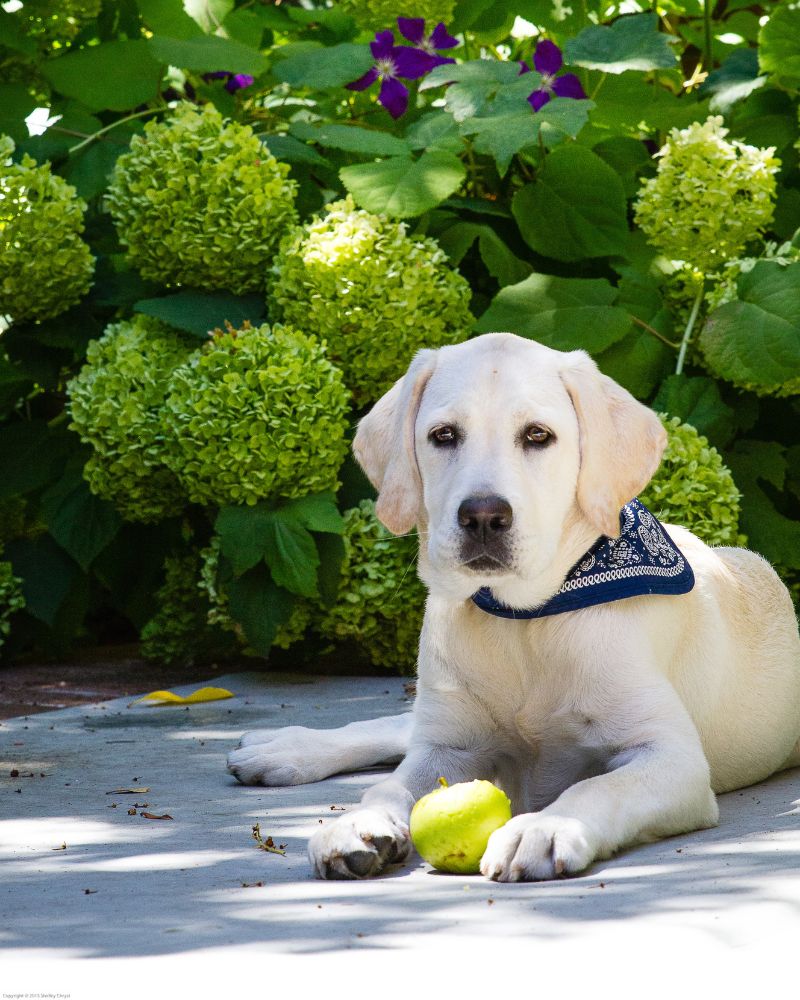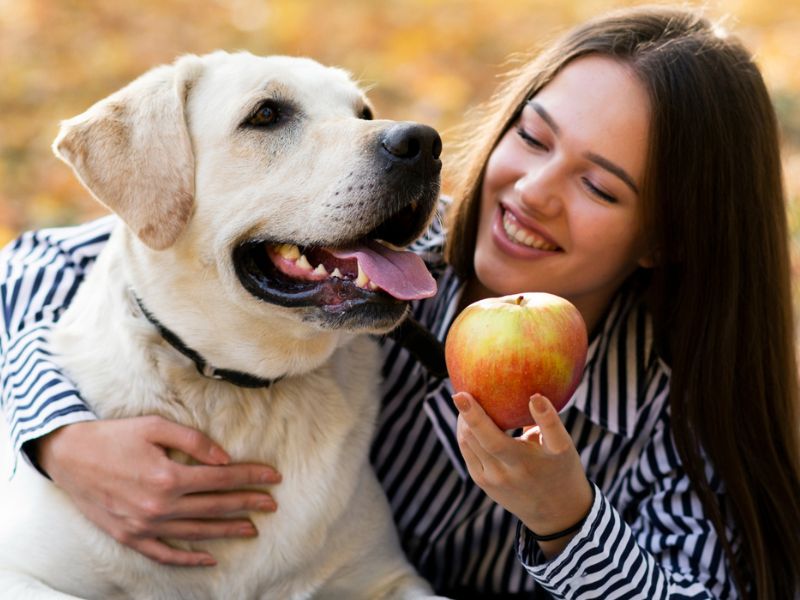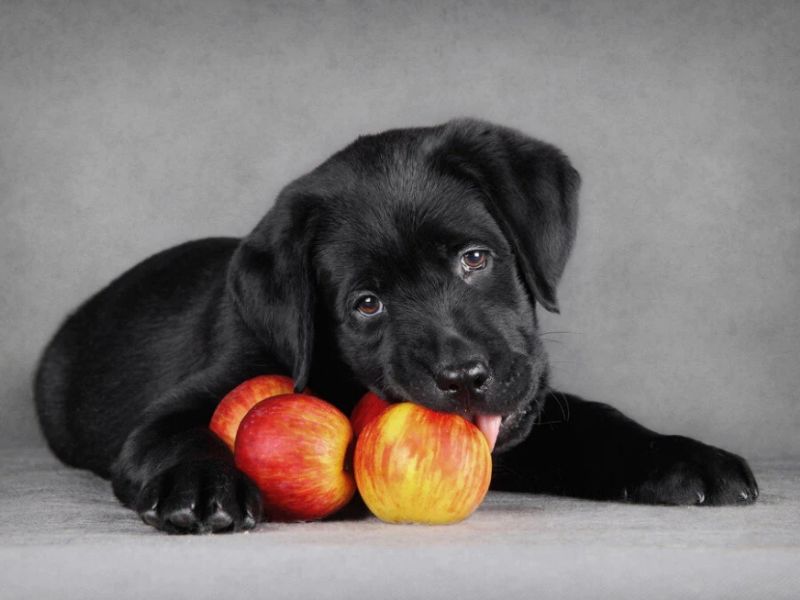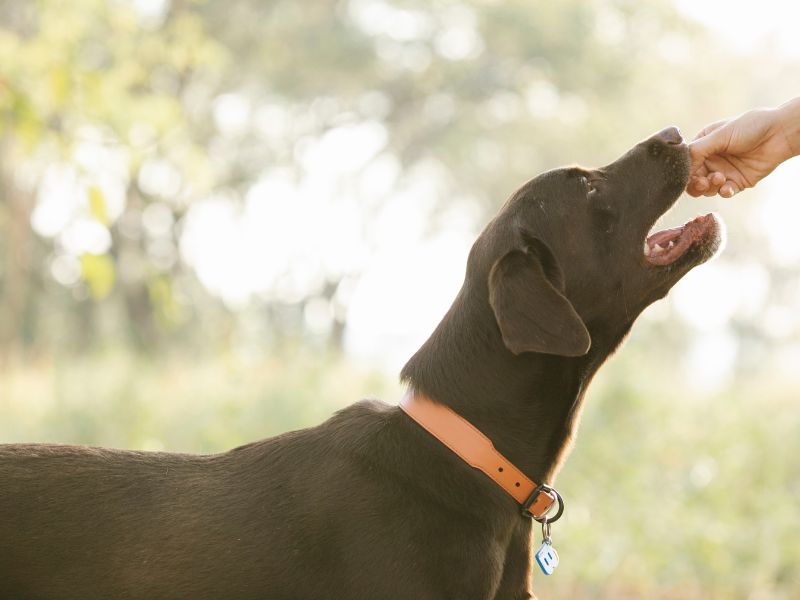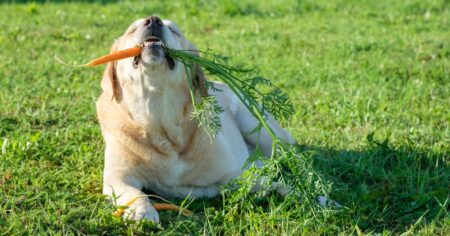Dogs are beloved members of many families, and owners want to ensure their furry friends are healthy and happy. One question that often arises is whether dogs can eat apples. Apples are a popular fruit that are rich in vitamins, minerals, and fiber. They are also low in fat and protein, making them a healthy snack option for humans. But what about dogs? Can they safely enjoy this delicious fruit?
The short answer is yes, dogs can eat apples. In fact, apples can be a healthy addition to a dog’s diet when fed in moderation. Apples are a great source of vitamins A and C, fiber, and antioxidants, all of which can benefit a dog’s health. However, it’s important to take some precautions when feeding apples to dogs, such as removing the core and seeds. Additionally, some dogs may have difficulty digesting apples, so it’s best to introduce them slowly and in small amounts.
Overall, apples can be a safe and nutritious snack for dogs when fed appropriately. However, it’s always a good idea to consult with a veterinarian before making any significant changes to a dog’s diet. By taking the necessary precautions and feeding apples in moderation, owners can provide their furry friends with a tasty treat that also supports their health.
Can Dogs Eat Apples?
Apples are a healthy and delicious snack for humans, but what about dogs? The good news is that dogs can eat apples, and they can even provide some nutritional benefits. However, there are a few precautions that dog owners should be aware of before feeding apples to their furry friends.
Can Dogs Eat Apple Cores?
While dogs can eat apples, they should not be given the apple core. The core contains seeds that can be a choking hazard for dogs, and the seeds also contain small amounts of cyanide, which can be toxic in large quantities. Therefore, it is important to always remove the core before giving apples to dogs.
Can Dogs Eat Apples – Skin And Peel?
Dogs can eat apple skin and peel, but it is important to wash the apple thoroughly before feeding it to your dog. The skin and peel can contain pesticides and other harmful chemicals that can be harmful to your dog’s health. Additionally, some dogs may have trouble digesting apple skin and peel, so it is important to monitor your dog’s reaction when feeding them apples.
Overall, apples can be a healthy treat for dogs when fed appropriately. They provide lots of vitamins, minerals, fatty acids, and fiber. However, it is important to always remove the core and wash the apple thoroughly before feeding it to your dog.
Can Dogs Eat Grapes?
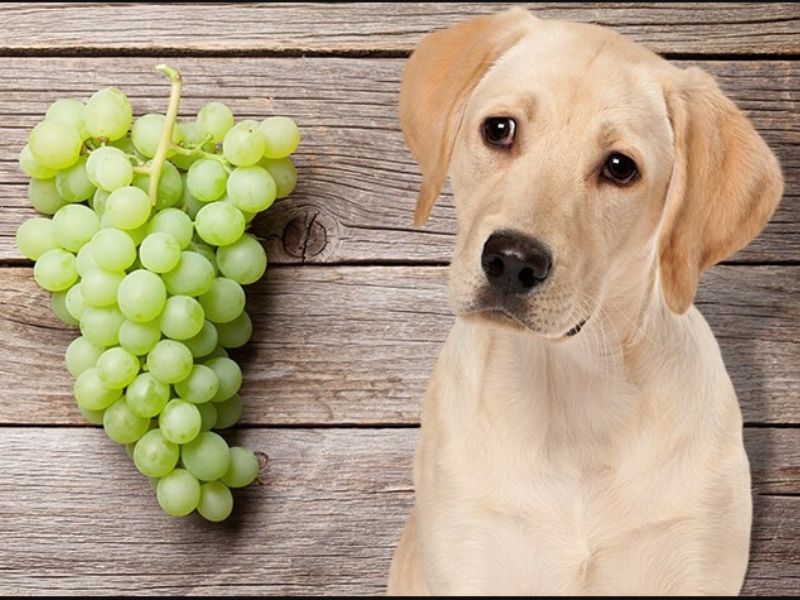
Grapes are a popular fruit that many people enjoy, but can dogs eat grapes? The answer is no. Grapes and raisins are toxic to dogs and can cause kidney failure. Even a small amount of grapes or raisins can be harmful to a dog’s health.
Why Shouldn’t Dogs Eat Grapes?
The reason why grapes are toxic to dogs is still unknown. However, it is believed that the skin of the grape contains a substance that is harmful to dogs. This substance can cause kidney failure in dogs, which can be fatal. Symptoms of grape toxicity in dogs include vomiting, diarrhea, lethargy, and dehydration.
Can Dogs Eat Raisins?
Raisins are just dried grapes, so they are also toxic to dogs. In fact, raisins are more concentrated than grapes, so they can be even more harmful to a dog’s health. It is important to keep all grapes and raisins out of reach of dogs, as even a small amount can be dangerous.
What To Do If Your Dog Eats Grapes Or Raisins
If your dog eats grapes or raisins, it is important to seek veterinary attention immediately. The vet will likely induce vomiting to remove the grapes or raisins from your dog’s system. They may also administer activated charcoal to help absorb any remaining toxins. In severe cases, hospitalization may be necessary to monitor your dog’s kidney function and provide supportive care.
In conclusion, grapes and raisins are toxic to dogs and should never be fed to them. It is important to keep all grapes and raisins out of reach of dogs to prevent accidental ingestion. If your dog does eat grapes or raisins, seek veterinary attention immediately.
Can Dogs Eat Citrus?

Citrus fruits are known for their high levels of vitamin C, and they are often consumed by humans as a healthy snack. But what about dogs? Can they eat oranges, lemons, peaches, or plums?
Can Dogs Eat Oranges?
Oranges are safe for dogs to eat in small amounts. They are a good source of vitamin C and fiber. However, they are also high in sugar, so too much can cause digestive issues and even obesity. It is best to remove the peel and seeds before giving your dog an orange.
Can Dogs Eat Lemons?
Lemons are not toxic to dogs, but they are not recommended. They are highly acidic, which can cause stomach upset and even diarrhea. The oils in the lemon peel can also be irritating to a dog’s digestive system.
Can Dogs Eat Peaches And Plums?
Peaches and plums are safe for dogs to eat in moderation. They are a good source of vitamins A and C, as well as fiber. However, they also contain pits that can be a choking hazard and cause intestinal blockages. It is important to remove the pits and cut the fruit into small pieces before giving it to your dog.
In general, it is best to feed your dog fruits that are low in sugar and easy to digest. Always introduce new foods slowly and in small amounts to avoid any adverse reactions. If you have any concerns about your dog’s diet, it is best to consult with a veterinarian.
Other Fruits Dogs Can Eat

Dogs can eat a variety of fruits in moderation. Fruits can provide essential vitamins, minerals, and fiber to a dog’s diet. Here are some fruits that dogs can eat:
Can Dogs Eat Bananas?
Yes, dogs can eat bananas. Bananas are a good source of potassium, fiber, and vitamins B6 and C. However, bananas are also high in sugar, so they should be given to dogs in moderation. It is best to feed bananas as a treat rather than a regular part of a dog’s diet.
Can Dogs Have Blueberries?
Yes, dogs can have blueberries. Blueberries are low in calories and high in antioxidants, fiber, and vitamins C and K. They are a healthy snack for dogs. However, blueberries should be given in moderation because too much of any fruit can cause digestive issues.
Can Dogs Eat Cranberries?
Yes, dogs can eat cranberries. Cranberries are a good source of vitamins C, E, and K, and they can help prevent urinary tract infections in dogs. However, cranberries are also high in sugar, so they should be given to dogs in moderation.
Can Dogs Eat Pears?
Yes, dogs can eat pears. Pears are a good source of fiber, vitamins C and K, and copper. They are a healthy snack for dogs, but they should be given in moderation because they are high in sugar.
Can Dogs Eat Tomatoes?
Tomatoes are safe for dogs to eat, but only the ripe fruit. The leaves and stems of the tomato plant contain solanine, which is toxic to dogs. Tomatoes are a good source of vitamins A and C, potassium, and fiber. However, they are also high in acid, so they should be given to dogs in moderation.
In conclusion, fruits can be a healthy addition to a dog’s diet when given in moderation. It is important to remember that fruits should be given as a treat and not as a regular part of a dog’s diet. If you are unsure about whether a fruit is safe for your dog to eat, consult with your veterinarian.
Fruit And Dogs
Dogs love treats, and fruit can be a healthy and tasty option. However, not all fruit is safe for dogs to eat. In this section, we will explore when fruit is good for dogs, what to remember when feeding your dog fruit, and what fruits dogs can eat.
When Is Fruit Good For Dogs?
Fruit can be a great source of vitamins, minerals, and fiber for dogs. Some fruits, like apples, are also low in protein and fat, making them a great snack for senior dogs or dogs on a weight-loss diet. Additionally, some fruits, like blueberries, are high in antioxidants that can help boost a dog’s immune system.
Remember When Feeding Your Dog Fruit:
While fruit can be a healthy treat for dogs, there are some things to keep in mind when feeding your furry friend. First, always remove any seeds or pits from the fruit, as they can be a choking hazard or even toxic to dogs. Second, be mindful of the sugar content in fruit, as too much sugar can lead to weight gain or other health issues. Finally, introduce new fruits to your dog’s diet slowly and in small amounts to avoid digestive upset.
Summary – What Fruits Can Dogs Eat?
Some fruits that are safe for dogs to eat include:
- Apples (without seeds)
- Bananas
- Blueberries
- Cantaloupe
- Mango
- Oranges (without peel or seeds)
- Pineapple
- Strawberries
- Watermelon (without seeds)
Always remember to feed fruit to your dog in moderation and as part of a balanced diet. If you have any concerns or questions about feeding fruit to your dog, consult with your veterinarian.
Personal Experiences
How About Your Dog?
Many dog owners love to share their favorite snacks with their furry friends, and apples are no exception. Some dogs may show a keen interest in apples, while others may turn their noses up at them. However, it is important to remember that dogs have different dietary needs than humans, and not all human foods are safe for them to eat.
Some dogs may have no problem digesting apples, while others may experience digestive issues such as upset stomach or diarrhea. It is always a good idea to introduce new foods to your dog’s diet gradually and in small amounts to avoid any adverse reactions.
One dog owner reported that her dog loves apples and has no problems digesting them. She often cuts up small slices of apples and adds them to her dog’s meals as a healthy treat. Another dog owner reported that her dog was not interested in apples at all and preferred other fruits such as bananas and strawberries.
Overall, it is important to remember that every dog is different and may have different preferences and dietary needs. While apples can be a healthy and tasty treat for some dogs, it is important to monitor your dog’s reaction and consult with a veterinarian if you have any concerns about their diet.
Additional Resources
Readers Also Liked
If you enjoyed learning about whether or not dogs can eat apples, there are many other fruits and vegetables that you can explore. For example, bananas are a great source of potassium and fiber, while blueberries are packed with antioxidants. Additionally, carrots are a low-calorie treat that can help clean your dog’s teeth. However, it is important to always do your research before feeding your dog any new foods. Some fruits and vegetables can be harmful to dogs, so it is important to know which ones are safe and which ones to avoid.
References
If you would like to learn more about feeding your dog a healthy diet, there are many resources available online. The American Kennel Club has a great article on fruits and vegetables that dogs can and can’t eat, which provides a comprehensive list of safe and unsafe foods. Additionally, the Veterinary Information Network offers a list of toxic foods that should be avoided, including chocolate, grapes, and onions. Finally, it is always a good idea to consult with your veterinarian before making any major changes to your dog’s diet.


